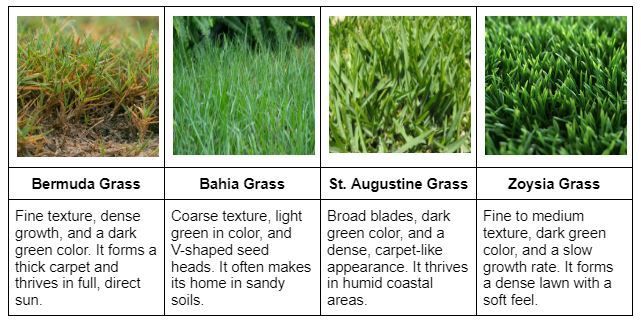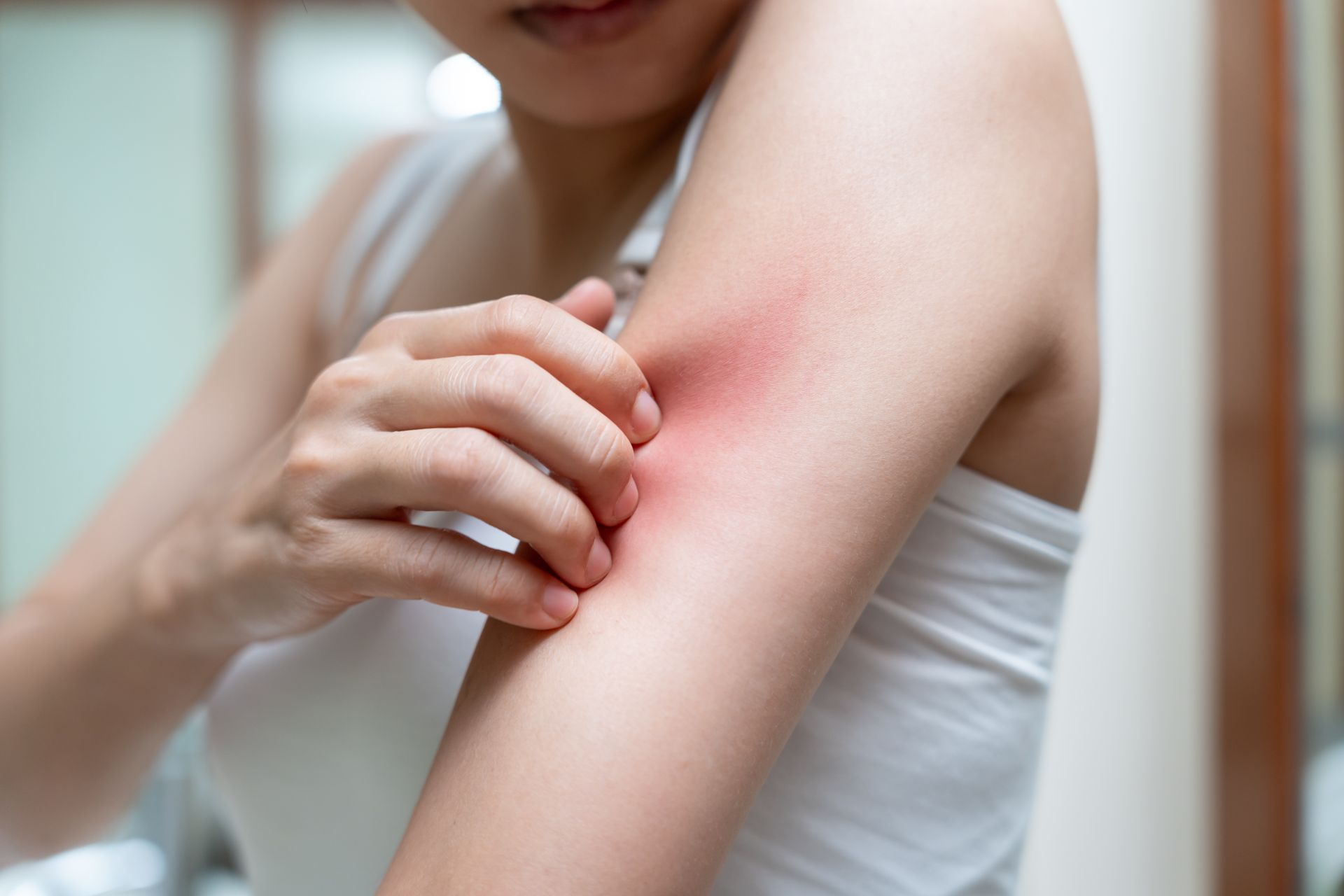Know Your Allergens: Identifying Common Grasses in Florida's Yards and Parks
One sunny day, you decide to take your kids to the local park. You hear the birds singing as you lay your picnic blanket under the sunny sky, but just as the fabric rustles the grass underneath it, your eyes start to itch. Before you know it, the sneezes won’t stop, and your perfect weekend has turned into a wheezy nightmare. This is just one of the countless family days that grass allergies have ruined in Florida.
Grass pollen, especially from Bermuda and Bahia grasses prevalent in Tampa and surrounding areas, often triggers severe allergic reactions in susceptible individuals, turning the joys of the outdoors into sneaky threats lurking in every grassy patch.
If you want to stay one step ahead of these sneaky allergens, we at Advanced Allergy and Asthma Care can help you take it a step or two further. This blog covers common grasses in Florida, the types of grass you might be allergic to, and practical tips for managing grass allergy symptoms. For further advice and effective treatments, you’re always welcome to book an appointment with our seasoned allergists.
Find Lasting Allergy Relief Today!
Are You Suffering from Grass Allergies?
Grass allergies are prevalent, especially in warm climates like Florida. These allergies occur when your immune system misidentifies the protein in grass pollen as a harmful substance, triggering an adverse response. Grass pollen levels can be exceptionally high during certain times of the year, making it essential to stay informed about local pollen forecasts.
Distinguishing the symptoms of grass pollen allergies ahead of time can help you find the proper treatment, making outdoor activities more enjoyable and comfortable. Early intervention may also prevent symptoms from worsening, further improving your overall quality of life.
Getting a Grass Allergy Test
Treatments are most effective when you have an accurate diagnosis. A grass allergy test can identify the specific allergens causing your symptoms. These tests typically involve a skin prick or a blood test to detect allergic reactions to grass pollens.
Common Grasses in Florida
Florida hosts a variety of grass species, each contributing differently to allergy problems. Here are some of some of the most common grasses you’ll encounter in the Sunshine State:

- Bermuda Grass
Bermuda grass, often found in Tampa and surrounding areas, thrives in the warm months from late spring to early fall. Because of its smooth feel and thick growth, it's a standard pick for lawns and sports fields. However, during its peak growing season, Bermuda grass produces significant pollen, which can trigger severe allergic reactions in susceptible individuals.
2. Bahia Grass
Bahia grass flourishes in Florida’s hot and humid climate, especially in the central and southern areas of the state. Due to its deep roots and ability to withstand drought, it is a common choice for lawns and roadside areas. It usually proliferates from late spring to early fall. However, it can trigger allergies, especially during its peak growing season in the summer months.
3. St. Augustine Grass
Widespread in coastal areas, St. Augustine grass is characterized by its thick, lush appearance. While it’s less allergenic than Bermuda and Bahia, it can still contribute to grass pollen allergies during the peak growing season, typically in the warmer months from late spring to early fall.
4. Zoysia Grass
Due to its dense, slow-growing nature, Zoysia grass is ideal for low-maintenance lawns in warm climates like Florida. While it produces less pollen, making it a slightly better option for allergy sufferers, it is not entirely free from causing reactions.
Managing Grass Allergies
Grass allergies can disrupt your daily life, but there are several strategies you can implement to alleviate your symptoms and enjoy the outdoors more comfortably. Effective management of grass allergies typically involves a combination of avoidance techniques, medication, and lifestyle adjustments. Here are some strategies that may help you manage your grass allergy symptoms:
- Limit Outdoor Activities
When pollen levels peak, especially in the early morning and late afternoon, it's wise to stay indoors. This helps reduce exposure to grass pollen, preventing allergy symptoms. Planning outdoor activities during lower pollen levels, such as after rainfall, can also help mitigate your risk of allergic reactions.
- Use Antihistamines
Over-the-counter antihistamines are an effective way to alleviate symptoms like sneezing, itching, and nasal congestion. These medications block histamine, a compound released by your body in an allergic reaction, which causes your symptoms. Taking antihistamines regularly during peak grass pollen season in Florida can provide consistent relief and allow you to function more comfortably.
- Keep Windows Closed
Keeping pollen out of your home is essential to manage grass allergies effectively. Close windows and doors on days when pollen levels are high to reduce the amount of pollen that enters your home. If you need to ventilate your home, consider using air conditioning with a high-efficiency particulate air (HEPA) filter to trap pollen particles and maintain indoor air quality.
- Shower After Outdoor Activities
After spending time outdoors, always shower and change clothes to remove any particles that may have accumulated on your skin and clothing. This reduces your exposure to allergens and prevents them from spreading throughout your home. Using a hypoallergenic body wash and shampoo can further minimize irritation for sensitive individuals.
- Wear Protective Clothing
When engaging in outdoor activities, especially lawn mowing or gardening, wear protective clothing such as long sleeves, pants, gloves, and a hat to minimize direct contact with grass pollen. Additionally, use sunglasses to shield your eyes from pollen particles and reduce the risk of allergic reactions.
- Consider Immunotherapy
If you have severe grass allergies or ongoing symptoms, your allergist might suggest allergen immunotherapy, also known as allergy shots. This treatment gradually introduces your body to small doses of grass pollen, helping your immune system become less sensitive to it over time. Immunotherapy can provide long-term relief from grass allergies and reduce the need for symptom management medications.
Mow Down Your Grass Allergies and Reclaim Your Outdoor Freedom
Grass allergies can significantly impact your quality of life, especially in a state like Florida, where greenery is everywhere. But you don't have to let allergies keep you from enjoying the outdoors. By understanding allergens and recognizing common grasses like Bermuda and Bahia, you can take proactive steps to manage your symptoms.
Implement practical strategies such as staying indoors during peak pollen times, using antihistamines, and showering after outdoor activities. And if you need more personalized care, our seasoned allergists at Advanced Allergy and Asthma Care are here to help. Relief is possible with the right approach and treatment, ensuring allergies do not ruin another sunny day.
Call
Advanced Allergy and Asthma Care experts at (727) 544-8100 or (813) 476-3394 to kick-start your treatment journey through personalized, expert care.
Explore Immunotherapy Against Grass Allergies!




